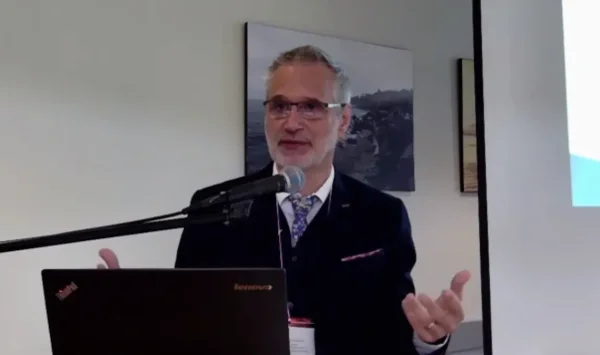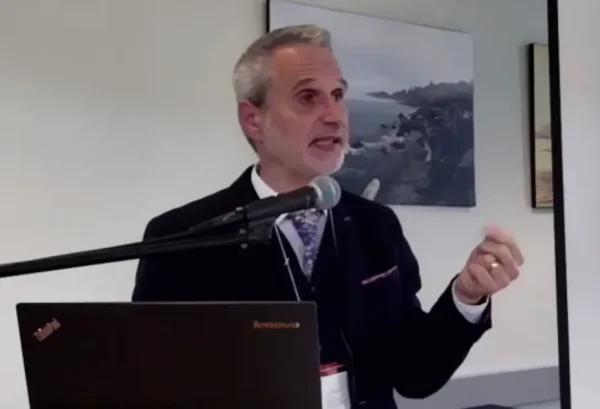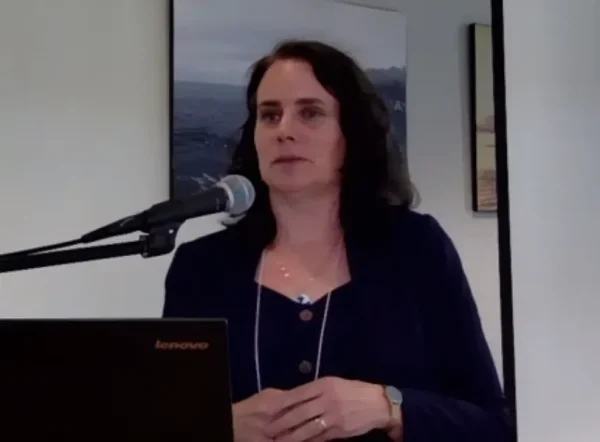- Français
- |
- Booklist
- |
- Week of Prayer
- |
- Links
- Areopagus - a forum for dialogue
- Academic journals
- Acronyms
- Bible tools
- Bibliographies
- Booksellers and publishers
- Churches
- Canadian church headquarters
- Directory of Saskatchewan churches
- Retreat centres
- Saskatchewan church and non-profit agencies
- Ecumenism.net Denominational links
- Anabaptist & Mennonite
- Anglican
- Baptist
- Evangelical
- Independent episcopal
- Lutheran
- Methodist, Wesleyan, and Holiness
- Miscellaneous
- Mormon
- Orthodox (Eastern & Oriental)
- Para-church ministries
- Pentecostal / charismatic
- Presbyterian & Reformed
- Quaker (Society of Friends)
- Roman & Eastern Catholic
- United and uniting
- Documents of Ecumenical Interest
- Ecumenical agencies
- Ecumenical Booklist
- Ecumenical Dialogues
- Glossary
- Human rights
- Inter-religious links
- Justice & peace
- Lectionaries
- Religious news services
- Resource pages
- Search Ecumenism.Net
- |
- Documents
- Ancient & Medieval texts
- Ecumenical Dialogues
- Interreligious
- Anabaptist & Mennonite
- Anglican
- Evangelical
- Lutheran
- Orthodox
- Reformed & Presbyterian
- Roman & Eastern Catholic
- United & Uniting
- Miscellaneous churches
- Canadian Council of Churches (CCC)
- Conference of European Churches (CEC)
- Interchurch Families International Network (IFIN)
- National Council of Churches in Australia (NCCA)
- Lausanne Committee for World Evangelism (LCWE)
- World Council of Churches (WCC)
- Other ecumenical documents
Church traditions
Documents from ecumenical agencies
- |
- Dialogues
- Adventist-Reformed
- African Instituted Churches-Reformed
- Anglican-Lutheran
- Anglican-Orthodox
- Anglican-Reformed
- Anglican-Roman Catholic
- Anglican-United/Uniting
- Baptist-Reformed
- Disciples of Christ-Reformed
- Disciples of Christ-Roman Catholic
- Evangelical-Roman Catholic
- Lutheran-Mennonite
- Lutheran-Mennonite-Roman Catholic
- Lutheran-Reformed
- Lutheran-Roman Catholic
- Mennonite-Reformed
- Mennonite-Roman Catholic
- Methodist-Reformed
- Methodist-Roman Catholic
- Oriental Orthodox-Reformed
- Orthodox-Reformed
- Orthodox-Roman Catholic
- Pentecostal-Reformed
- Prague Consultations
- REC-WARC Consultations
- Roman Catholic-Lutheran-Reformed
- Roman Catholic-Reformed
- Roman Catholic-United Church of Canada
- |
- Quick links
- Canadian Centre for Ecumenism
- Canadian Council of Churches
- Ecumenical Shared Ministries
- Ecumenism in Canada
- Interchurch Families International Network
- International Anglican-Roman Catholic Commission for Unity and Mission
- Kairos: Canadian Ecumenical Justice Initiatives
- North American Academy of Ecumenists
- Prairie Centre for Ecumenism
- Réseau œcuménique justice et paix
- Week of Prayer for Christian Unity
- Women's Interchurch Council of Canada
- World Council of Churches
- |
- Archives
- |
- About us
Religious scholar: Canada becoming ‘post-secular’ society
— May 15, 202315 mai 2023New forms of spirituality, revival of traditional Indigenous beliefs, rising immigration, and debates on secularism are blurring the line between religion and non-religion in Canada, scholar David Seljak says — part of what he calls a “permanent revolution” and the latest development in how religion has shaped the country’s social order.
Seljak, a professor of religious studies at St. Jerome’s University in the University of Waterloo, shared his views as the opening speaker at “Land, Law, Religion and Reconciliation,” a colloquium hosted by the University of Victoria’s Centre for Studies in Religion and Society (CSRS) May 4-6. His livestreamed presentation was the latest of the John Albert Hall Lectures, a series hosted by the university in which notable speakers discuss the changing role of religion in modern society.
The lectures are a collaboration between the Anglican diocese of Islands and Inlets (also known as the diocese of British Columbia) and the CFRS and funded by the John Albert Hall Trust. Associate law professor Kathryn Chan said in an introduction that the centre and diocese have worked together since at least 1996 to offer education programs “for the benefit of Anglican clergy and laity, other persons of faith, the academic community and the general public.” Bishop Anna Greenwood-Lee provided a response to Seljak’s lecture.
Read the rest of this article in the Anglican Journal
Colonial Christendom
Seljak described Canada as a “European-inspired project to create a social order on this territory”—a project “intimately tied to land and people.”
“Historically, that project first took the form of a colony with an established church, a state church,” Seljak said, “then a multi-denominational Christian dominion, and more recently a secular, multicultural liberal democracy married to a free market economy. In each era, those in power have sought to set in stone the place of religion in society. And in each era, they faced unexpected opposition, challenges, contradictions.”
Within this project, Seljak saw a recurring historical pattern in which a problem arises and a solution is found—one that is in turn followed by new problems, a new solution, a newer situation and so on.
Seljak described four stages in the history of religion in Canada: colonial Christendom, plural establishment, secular Canada and the current era in which, he says, Canada is moving toward a state of “post-secularism.”
Colonial Christendom, he said, emerged with the founding of European colonies in Canada. Facing what they saw as the problem of “wilderness,” “social chaos” and lack of order, Seljak said, settlers sought to organize a society by copying the principle that had governed Europe since Constantine I, the first Christian Roman emperor: “one state equals one religion, one church, and that is how you ensure stability.”
French and British settlers both tried the solution of transplanting Christendom to North America, Seljak said, but then faced a new problem: they lacked the resources to do so. “Christendom was the product of a long period of social and economic development” in Europe, the scholar said. When English priest Jacob Mountain was appointed the first Anglican bishop of Quebec in 1793, there were only nine priests combined in Lower and Upper Canada—the territories that later became Quebec and Ontario, respectively. French-speaking Roman Catholics refused to convert to Protestantism after the British took control of Lower Canada. Many Indigenous people remained unconverted.
Seljak cited the work of Canadian sociologist S.D. Clark, who said that an “establishment religion” such as the Church of England was too expensive compared to what Clark called “cheap religion” provided by competitors such as Methodists and Baptists.
“Instead of sending somebody back to England, training them for years so that they are an Anglican priest, somebody has a religious inspiration, [Methodists and Baptists] put their Bible in their backpack and off they run and they’re founding churches left, right and centre,” Seljak said.
That new diversity among Protestants in Canada, he said, led to conflict with Church of England families that contributed to the 1837-8 rebellions in Upper and Lower Canada.
Plural establishment
An establishment church had gone from being a solution to a problem which required a new solution, Seljak said. This second solution came in the form of a “plural establishment,” in which Canada’s ruling elite allowed what Seljak described as an “oligarchy of churches” comprising multiple mainline Protestant denominations and “begrudgingly, the Roman Catholic Church, because there are just so many darned French Catholic communities and people.”
“From 1840 until 1960, this solution works rather well,” Seljak said. “At least in many ways, the mainline churches become part of the state apparatus.” In 1867, the British North America Act consigned certain duties and responsibilities to the provinces. However, since provincial governments were small at the time, duties such education—“including, regrettably, the residential school system,” Seljak said—health care and social services were all relegated to the churches.
“What it also meant is that Christian social and moral values become part of public culture,” he added. In Canada at this time, “Christian privilege is considered absolutely normal and natural … Canada did not have an American-style separation of church and state … Christianity was there to promote the unity of Canadian society.”
The plural establishment of “Christian Canada,” however, gave rise to a new problem with the impact of industrialization, urbanization, and massive immigration and population growth, Seljak said. Churches were unable to handle the needs of a more complex society with its new demands for education, health care and social services.
There was also a growing awareness, he said, that the state’s privileging Christianity violated democratic principles regarding equal rights for all citizens—and even fomented bigotry against Christian denominations and faiths outside the established “oligarchy,” as well as sexism and homophobia.
Secular Canada
These new problems, Seljak said, gave rise to a third solution: “secular Canada.” Christians were at the forefront of this shift.
“Canada is secularized not by some outside ideology and not by some outside force … Canadian Christians secularized Canada,” Seljak said. He offered the example of Quebec politician and journalist Claude Ryan (1925-2004), a devout Roman Catholic who served as director of the newspaper Le Devoir, Quebec Liberal Party leader and provincial education minister.
Individuals like Ryan, Seljak said, were deeply committed Christians. However, he added, “they see that church-run schools, for example, cannot produce the engineers, the scientists, the entrepreneurs that a modern industrialised society like Canada needs. So they want religion to become confined to the private sphere of life.”
Despite being nominally secular, Canada retained many faith-based public institutions such as publicly funded Roman Catholic schools. Even today, as the number of Canadians identifying themselves as Christians has dwindled compared to those of other faiths or no faith, Seljak said, Canada remains “residually Christian.”
“It’s easier for mainline Christians to live in a so-called secular Canada than other people,” he said. “For example, major [Christian] holidays, Good Friday and Christmas, are national holidays. We don’t have to apply for accommodation to celebrate our major holidays … whereas Buddhists and Jews and Hindus and Muslims at least have to negotiate with an employer. They have that right to do so, but they have to at least make the effort to apply for an accommodation, which can be refused if it causes the employer undue hardship.”
One challenge to the concept of “secular Canada,” he said, is that Indigenous communities are increasingly calling for recognition of Indigenous spirituality in land claims, education, health care and social services.
Seljak referred to a recent paper he co-authored on health care. “In the face of continuing health outcomes for Indigenous people, the Canadian state is willing to soften its secular approach, allowing Indigenous spirituality to become part of the institutional structure for the delivery of health care for Indigenous communities,” he said. “You see this especially in addictions treatment, where Indigenous spirituality becomes an important part of the recovery process in the state-funded institutions. [This is] good news, but it does violate this idea of a secular public sphere and secular public institutions—happily, I might add.”
Finally, Seljak noted a “deinstitutionalization” of religion and shift to different forms of spirituality on the part of many people, from those who say they believe in a higher power but are “spiritual, not religious” to those who practice yoga and naturalistic healing.
Post-secularism?
In the face of these new contradictions, Seljak argued that Canada is now moving towards a “post-secular” society, “a future where that line between religion and non-religion becomes more blurred, less important.”
Seljak offered the corrections system as an example. “If I am incarcerated, and I ask for a meal, I say I need halal [food prepared according to Islamic dietary laws]… they are required to provide me with a meal that doesn’t violate my religious principles. If I say I’m an ethical vegan, I really believe that the eating of animals is an absolute crime. There is no [legal] need to accommodate me.
“Both have this depth of commitment we can understand … Both of them are moral positions,” he added. “But by law one has to be accommodated and the other not accommodated. This difference between religion and non-religion is becoming, in many people’s minds, a problem.”
Seljak said it was uncertain precisely what a post-secular Canada would look like, but that it would challenge the privatization of religion. Post-secularism would not mean going back to the days of Christian privilege, he added, but would permit some level of bringing one’s religion into the public sphere.
He cited the German philosopher Jürgen Habermas, who viewed the privatization of religion as disadvantaging religious people who must express their ideas and beliefs in what Seljak called “this so-called neutral, rational discourse;” and Canadian philosopher Charles Taylor, who Seljak said called for a “multiculturalism that is multifaith.”
Bishop: Christians must shed ‘false dualisms’
In her response to Seljak’s lecture, Greenwood-Lee described the Anglican diocese of Islands and Inlets as “the most secular diocese of North America.” Whereas, according to Seljak, one-third of Canadians identify as having no religion, in B.C., she said, that number is 50 per cent and in the Greater Victoria Region around 60 per cent.
The bishop connected the history of her diocese with Seljak’s interpretation of the history of religion in Canada. She said the sponsoring institutions of the lecture, both university and diocese, carry “Eurocentric,” colonial and white supremacist historical baggage.
While the diocese is still legally known as the Anglican diocese of British Columbia, Greenwood-Lee said, “we also have the registered name of the diocese of Islands and Inlets, which more accurately I think reflects our attempt to be a post-colonial presence in this part of God’s creation. We began as the established religion of this colony and we moved through all the stages that have been so helpfully outlined for us this evening.”
Greenwood-Lee said our understanding of the word “religion” is itself very modern and Western. “Most of the world’s cultures and languages have no analogous concept,” she said. “We’ve created this dichotomy between the religious and the secular … We think that to be a religion, you have to have buildings, books, and belief systems,” which she said had created a bias against Indigenous spiritualities.
Any talk of religion in Canada, the bishop said, must also acknowledge that at the same time Christians in Canada were building pioneer churches, they were banning Indigenous ceremonies such as the potlatch and Sun Dance.
Greenwood-Lee also said there was a need to acknowledge that Canada was “founded with a false dualism between the Christian colonizers as the ‘civilized’ folk and the Indigenous residents as the ‘heathens.’ We must acknowledge that we told ourselves we were saving souls, when in fact I think we knew full well we were simply justifying our own greed and sin and violence.
“My hope is that in this next age, we Christians might shed all of these false dualisms and live into the paradoxes that are at the centre of our faith. Christians hold to the strange concept that we are both simultaneously, sinners and saints … What is true of Christians as individuals … is equally true, or perhaps even more true, of the church as an institution.”
The Anglican diocese of Islands and Inlets comprises 46 churches, 26 cemeteries, eight housing societies and the largest refugee sponsorship group on Vancouver Island, Greenwood-Lee said. Yet these assets of the diocese, she added, are on the unceded territories of more than 50 first nations and its title to these properties is the result of colonialism.
The church as an institution is still in the very beginning of the work of reconciliation with Indigenous people, Greenwood-Lee said. As a result, contradictions remain and much work towards reconciliation still has yet to be done.
Churches in the diocese of Island and Inlets “are at one and the same time places of worship for diminishing numbers of largely white congregations, of people like myself of British descent; and signs of hope and hospitality, places where all the people of God gather and operate food banks and warming shelters, offer for community needs meals and support groups,” Greenwood-Lee said. “At their best, I see them striving for justice and peace among all people and respecting the dignity of every human being.”

 Permanent link: ecumenism.net/?p=13907
Permanent link: ecumenism.net/?p=13907
Categories: Anglican Journal • In this article: Canada, secularism

 Lien permanente : ecumenism.net/?p=13907
Lien permanente : ecumenism.net/?p=13907
Catégorie : Anglican Journal • Dans cet article : Canada, secularism





